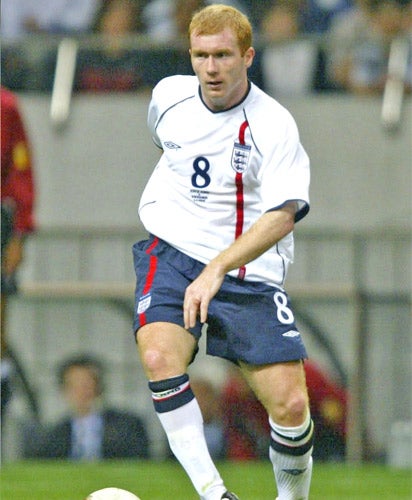James Lawton: It's the formation that's best for our players – as Ramsey proved in '66
The 4-3-3 system that Alf Ramsey unveiled on the approach to the 1966 tournament remains the best vehicle for a significant England challenge

Your support helps us to tell the story
From reproductive rights to climate change to Big Tech, The Independent is on the ground when the story is developing. Whether it's investigating the financials of Elon Musk's pro-Trump PAC or producing our latest documentary, 'The A Word', which shines a light on the American women fighting for reproductive rights, we know how important it is to parse out the facts from the messaging.
At such a critical moment in US history, we need reporters on the ground. Your donation allows us to keep sending journalists to speak to both sides of the story.
The Independent is trusted by Americans across the entire political spectrum. And unlike many other quality news outlets, we choose not to lock Americans out of our reporting and analysis with paywalls. We believe quality journalism should be available to everyone, paid for by those who can afford it.
Your support makes all the difference.When fabio Capello met Sir Bobby Charlton on his first working day as England manager he told one of the heroes of the nation's only World Cup success in 1966: "Charlton, I wish to take England to the final of the World Cup in South Africa."
Charlton restricted himself to some encouraging pleasantries and the private thought: "Well, it will not be before time."
This may have been a pity because, if the man who for all his sumptuous gifts was given the job of marking Franz Beckenbauer in the Wembley final had carried one unshakeable regret down all the years, it was that a series of England managers had failed to see what his own coach, Sir Alf Ramsey, had understood so clearly.
It was that the 4-3-3 system he unveiled on the approach to the 1966 tournament – and earned his team the derisive nickname The Wingless Wonders – remained, by some distance, the best vehicle for a significant England challenge.
Capello, who was weaned on the 4-4-2 approach of his brilliant mentor Arrigo Sacchi at Milan – it brought both of them European Cup triumphs – has now embraced 4-3-3 to the enthusiastic response of an otherwise largely critical audience.
He likes the clear demarcation lines of responsibility it imposes through the team, the emphasis on good-hearted performance and the creative scope it provides for young players like Jack Wilshere and, over the last two games, Ashley Young.
Best of all, it puts a new premium on solid contributions from such underperformers as Wayne Rooney, Steven Gerrard and Frank Lampard.
As even the luminously talented Jimmy Greaves found out 45 years ago, in 4-3-3 there is no hiding place for anything less than total commitment to the team ethic. Capello may just be saying that, if he is fighting for his credibility, so must be even the most entrenched of his high-profile performers.
Greaves lost his place in the World Cup team because Ramsey in the end concluded that just as he had to find places for such valuable players as Alan Ball and Martin Peters at the expense of traditional wingers, the potentially deadly finishing of the Tottenham striker, who had been ill in the build-up to the tournament, did not exceed the value of the hard work and strength of Roger Hunt and Geoff Hurst.
Charlton's frustration at the neglect of a system which had proved so adaptable to the virtues of the English game reached a high water mark in Portugal in the European Championship finals of 2004, when Paul Scholes became so disenchanted with the tactics of Sven Goran Eriksson that he retired from international football.
Scholes had long been one of Charlton's all-time favourite players and one he believed particularly suited to 4-3-3.
Charlton said: "I've always believed the system was best suited to English players. For me, the greatest strength of 4-3-3 is its power to bring teams together, and this is especially noticeable in outstanding players who are playing in different systems for their clubs. Over the years, players like Scholes, [David] Beckham, Gerrard and [Frank] Lampard had been successful at their clubs, then struggled in the England team. I was amazed that 4-3-3 was a way of playing almost completely shunned by Eriksson and [Steve] McClaren.
"Scholes, who in my opinion has always shown the most natural instincts for a true midfielder, became so frustrated by being played out on the left he just quit the England team. It was a terrible loss."
Now Jack Wilshere has a chance to reopen a door closed on Paul Scholes. It is a possibility that may just have the force of most relevant history.
Join our commenting forum
Join thought-provoking conversations, follow other Independent readers and see their replies
Comments